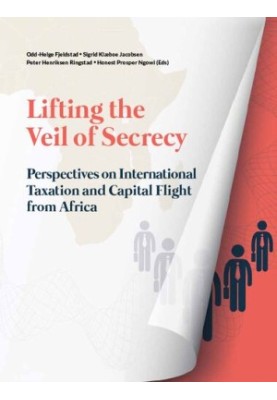Lifting the Veil of Secrecy : Perspectives on international taxation and capital flight from Africa
 Instant download
Instant download
after payment (24/7)
 Wide range of formats
Wide range of formats
(for all gadgets)
 Full book
Full book
(including for Apple and Android)
Increasing domestic revenue is a priority for most African countries. An effective taxsystem is central to sustainable development. African governments need to mobiliserevenues to finance public spending. Tax is key to growth and redistribution.Mobilising the domestic revenue base is crucial for African countries to escape fromforeign aid or natural resource dependency.Widespread tax avoidance and evasion undermine the domestic tax bases in mostAfrican countries (IMF 2011). It limits the amount of resources available for thegovernment and undermines economic efficiency, income distribution, and thegovernment’s legitimacy.It is estimated that African countries, relative to the size of their economies, losemore in corporate tax evasion than countries anywhere else in the world (Crivelli etal. 2015). The international tax system facilitates tax avoidance and evasion. Thereare a number of examples of multinational companies, particularly in extractivesectors, that pay little tax by transferring profits to tax havens. Similarly, there aremajor challenges in the taxation of renewable natural resources, such as fisheries,forestry, and wildlife. In these cases, only limited revenues reach the treasury inmany African countries. Recent information leaks also show that Africans with greatwealth hide it in tax havens beyond the reach of their national tax and judicialauthorities. In 2015, a list of clients of the HSBC bank with secret accounts inSwitzerland became public. The Swiss leaks revealed that residents in sub-SaharanAfrica held huge amounts of money in secret accounts.
LF/976947306/R
Data sheet
- Name of the Author
- Honest Prosper Ngowi (eds.)
Odd-Helge Fjeldstad
Peter Henriksen Ringstad
Sigrid Klæboe Jacobsen - Language
- English
- ISBN
- 9788280626691
- Release date
- 2017












